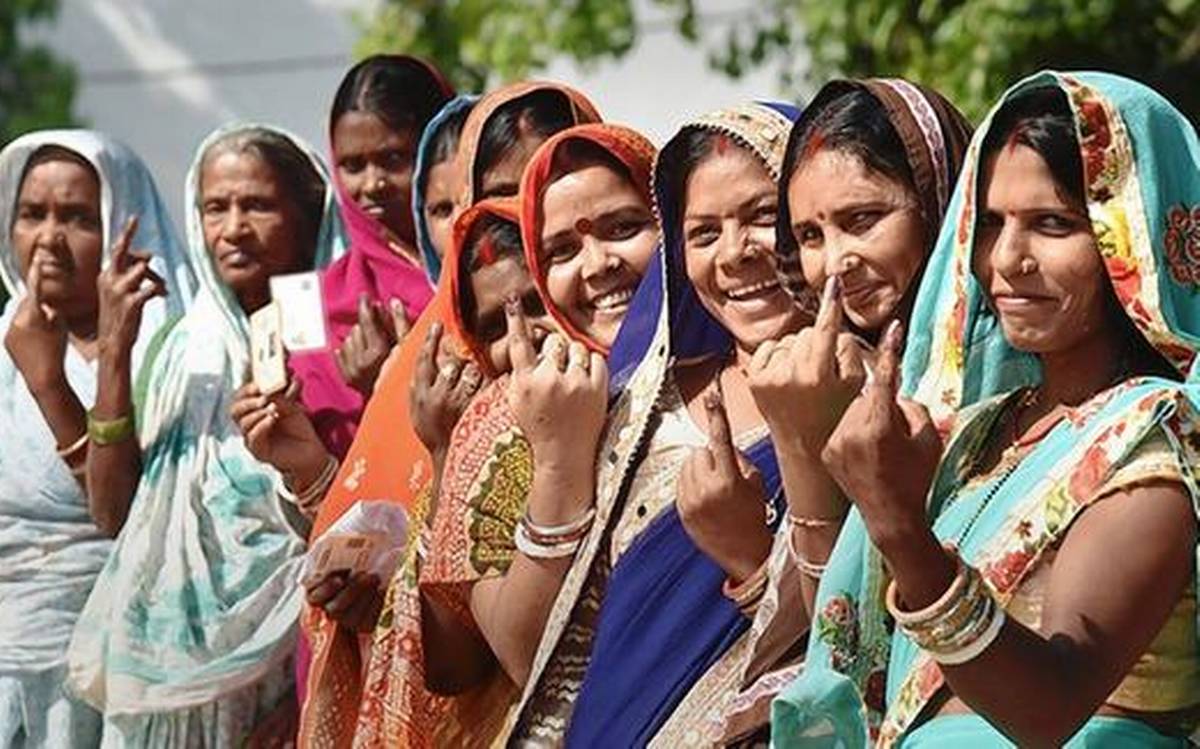Women supporters of the Nitish Kumar-led government in Bihar are gradually shifting their allegiance away from the current state government. They are feeling hammered by lockdown and are angry at the failed promises of the state government. Women voters have increased steadily over the past four Assembly elections in Bihar. In 2015, they went ahead of the male populace by a large margin, with 60.48% of them turning out to vote as compared to 53.32% men. Despite expected voter fatigue and weariness, more women had turned out to vote, at 44% (1.06 crore), compared to earlier in 2015, while the figure for men had fallen.
Since 1962, the turnout among women voters in 2015 was the highest in Bihar. In actual numbers though, the total number of men voters (1.9 crore) was slightly more than women voters (1.89 crore) in 2015. In that year, the total voter turnout was at 56.66%.
In 2000, Jharkhand was carved out of Bihar. This resulted in the arrangement of the assembly elections in February and October in 2005, 2010, and 2015. Analysis of the election data in February 2005 indicated that the proportion of women who voted was at 42.51% which was 1.04 crore in total. The analysis showed that in the next 10 years, there was an increase of 20%. On the other hand, among the male voters, 49.94% which was 1.40 crore had voted in February 2005 which increased by a very low 4% till 2015 as compared to the participation of the women. In February 2005, the total voter turnout was 46.5% in Bihar.
The February 2005 election showed a fractured result, hence assembly elections were again held in October of that year in four phases. As elections were being again held in the same year, weariness and fatigue were expected in the voters. Even under this scenario, women turned out to vote in higher numbers at 44% (total number of women voters was 1.06 crore), which was higher than the February 2005 turnout by the women. On the other hand, the turnout by the male voters fell as compared to the February 2005 scenario. It was in this election when Nitish Kumar was made the CM of Bihar with BJP supporting the JD(U). Since then, in the Bihar elections, the women’s turnout has seen a continuous rise. For example, in the 2010 Bihar election, women voter turnout increased by more than 10% with respect to the October 2005 polls and reached a level of 54.48%. It was higher than the men’s turnout which was at 51.12%.
In the 2015 polls in Bihar, the turnout of women voters went above the 60% mark and the men’s participation saw a meager increase of 2%. This increasing trend of women voters turnout was carried forward into the 2019 Lok Sabha elections as well when 59.58% of women (1.99 crore) came out to vote and 55% (2.08 crore) of the men voted.
With the increasing participation of the women in the polls in Bihar which to a large extent is guided by caste and gender identities, the government led by Nitish Kumar should be worried as uncomfortable questions are being raised by women in the bastions and strongholds of JD(U). The anger is specifically related to the issue of Prohibition, where the women claim that the promises made while bringing the Prohibition laws were nothing but fake and vacuous statements. The situation has further complicated during the lockdown.
On November 26, 2015, the Nitish Kumar-led government had declared that from April 1, 2016, onwards, a total ban on any type of liquor would be effective in Bihar. But, that does not seem to be the case after more than four years of bringing the prohibition law.
There have been incidents where women claim that they had to stand between their drunk husband and their children to protect the children from getting beaten by the inebriated father. There had been a ‘all happy give and take’ scenario in Bihar with the state government rolling out schemes like cycles for girl students, augmentation of the women run Self-help groups especially under the Jeevika programme and reservation of half of the seats at the Panchayat level for women, and the women coming out in larger numbers to vote Nitish Kumar back in power. But, somehow the promises made in the case of prohibition law do not seem to fit the bill.
The scenario has become much worse after the mismanaged lockdown which created a parallel alcohol-driven economy. With countless workers going out of work during the lockdown and numerous others managing to get back home from Metros across the country, the alcohol became the last resort and refuge for most of the men which added to the issues of domestic violence in the midst of a smashed economy.
There are complaints about the non-availability of necessary rations and void of work which has indirectly impacted the womenfolk. Many women claim that they would have to sell their jewellery items so as to finance the studies of the kids as their husbands are out of job. The category of voters who had seen increasing participation in the polls, the women, are now asking about the promises broken by Nitish. Many are complaining that under the rule of the RJD’s Yadav, the poor had at least some respect and some livelihood, both of which are snatched away now. The lockdown had broken the trust factor of the Nitish Kumar government especially of that group which had been a large and expanding support base for JD(U), the women.
The pitch of the Bihar polls is not going to be easy on Nitish Kumar after the state and its women have faced the brunt of the lockdown and the broken promises of prohibition.





